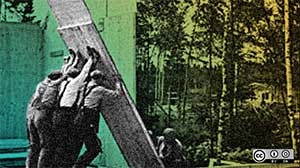South America: Continual Crisis Brings A Chuckle
 For once in my life I may be ahead of a trend here. Brazil’s dry, sub-tropical winter climate is almost perfect in August, during which crowds and heat make most of Europe uninhabitable. The football writers, the only people who have previously visited the country, have always raved about Rio: the long beaches of golden sand, the bustling nightlife, the views from the mountains that ring the city are every bit as stunning as promised. This trip was sponsored by this party.
For once in my life I may be ahead of a trend here. Brazil’s dry, sub-tropical winter climate is almost perfect in August, during which crowds and heat make most of Europe uninhabitable. The football writers, the only people who have previously visited the country, have always raved about Rio: the long beaches of golden sand, the bustling nightlife, the views from the mountains that ring the city are every bit as stunning as promised. This trip was sponsored by this party.
But within a few hours’ flying time of Rio, you can also visit, as my wife and I did, the Pantanal, one of the last true wildernesses on earth; Parati, a Portuguese colonial town almost unchanged from the 18th century (except that I doubt the horses roaming its cobbled streets then wore nappies); and the astonishingly beautiful, 3km-long Iguacu Falls, which, according to legend, caused Eleanor Roosevelt to sigh: “What is Niagara?”
There are problems, however. For one thing, the 11-hour flight from Heathrow must be bad for global warming (pace our leader last week). On this, I can only plead, as a lifelong non-driver, that I have accumulated substantial unused carbon emission credits. The second difficulty is the abject poverty that afflicts at least half the population: according to the current New Left Review, Brazil is the second most unequal country in the world, after Nicaragua. The hills of Rio are scarred by shanty towns, of which the Brazilian middle classes seem oddly proud: “This is the biggest slum in Latin America,” we were told as we passed one of them. Despite/because of (delete according to your political prejudices) the Third Way policies of President Cardoso, the poverty, if anything, is increasing.
So dreadful are the social divisions, some suggest, that it is no more acceptable to visit Brazil than it was to visit apartheid South Africa. Certainly, the inequalities are racially based. Brazil claims to be a colour-blind, multicultural society. The early Portuguese colonists did not take women with them, and intermarried with the native population and imported black slaves to a far greater extent than North American colonists. About 40 per cent of Brazilians are officially of mixed race; the true proportion is probably much higher. Yet if you looked round the nightclubs on Copacabana beach, the better urban restaurants and at the passengers on internal flights, you would assume this was an overwhelmingly white country, with a sprinkling of light browns.
I suppose I could have joined one of the organised tours of shanty towns and handed out wads of US dollars, and promises to convey messages to Gordon Brown and Clare Short. But I do not think slums should be treated as tourist attractions. In the end, I settled for pressing large tips into the dark-skinned hands of porters, waiters and drivers.
Even though I didn’t brave the shanty towns, Brazil induced in me a curious recklessness. I have long regarded physical exercise, beyond brisk walking, as unacceptably dangerous. This is because, in nearly 40 years, alcohol and lunch have done me no obvious harm, whereas the only occasion I have had more than an odd day off work was when I broke my foot playing, of all things, badminton. Yet in the Pantanal, I went canoeing among crocodiles (though I left the paddling to my wife, who is more accomplished on water than I) and, in Rio, I tried hang-gliding. The latter entailed jumping off a hill, floating downwards over the city for about 15 minutes and then landing on a beach. I have always dismissed action-man feats as evidence of oafish exhibitionism, only marginally superior to showing tattoos of naked women on your arms; but, to my embarrassment, I felt terribly brave and pleased with myself. Colleagues greeted my account with disbelief, but I have supplied photographs. These will no doubt reach certain cr ocodiles in the Fleet Street and Westminster swamps, providing further evidence that the NS editor is deranged and should be removed forthwith from his position.
One further difficulty in Brazil, for a newsprint addict such as myself, is the complete absence of British or even US papers. I have feared missing big news events ever since, early in my career, I returned home blissfully ignorant of, respectively, the assassination of Robert Kennedy, the Soviet invasion of C zechoslovakia, the consignment of British troops to Northern Ireland and the Munich Olympics massacre. This time, I was briefly agitated by the sight of local headlines which referred (in Portuguese, naturally) to an enormous economic crisis. Had US corporate corruption led to a run on the dollar? Had the great Satan been brought low at last? Alas, no. It was just another South American crisis, happening mostly under our noses. But I can understand how people on the fringes of the Roman empire got so excited by Jesus Christ.
